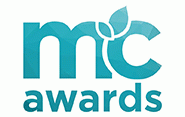Two Yale Teams Compete for $1.75M Prize

3Derm Systems and Fluid-Screen, both biotech startups founded at the Yale School of Engineering & Applied Science, have been selected as finalists in the 2014 MassChallenge Awards competition. The 26 finalists in the competition—selected from over 1650 applicants—will compete in a showcase presentation on Wednesday, Oct. 29, with the awards ceremony that evening.
The MassChallenge Awards competition is the startup community's largest and highest-value event to celebrate innovation and support the world's most promising startups, with winners receiving prizes amounting to up to $1.75 million in cash and over $10 million in in-kind deals.
The two Yale finalists both developed out of research conducted at the University. 3Derm Systems was founded in 2012 by biomedical engineer Liz Asai and electrical engineer/computer scientist Elliot Swart based on technology they had created as Yale undergraduates; their inexpensive handheld imager takes 3D pictures of skin to enable dermatologists to remotely analyze and monitor patients' skin conditions, with patients being able to upload new images over time; the technology helps patients and clinicians detect skin cancer at earlier, more treatable stages.
The team's device—a prototype of which was built with the Center for Engineering Innovation & Design's 3D printers for just $400—won $100,000 in the Center for Integration of Medicine & Innovative Technology's Primary Healthcare Prize competition in 2011, and an additional $12,500 as the first place undergraduate winner in the Collegiate Inventors Competition. 3Derm continues to refine its system through privately funded contract development and manufacturing and is currently recruiting health networks for its 2015 pilot class.
Fluid-Screen, founded and managed by electrical engineering doctoral student Monika Weber, has met with similar success. The company's signature invention is a silicon-based disposable electronic biosensor that can detect bacteria in liquids like blood or water in less than 30 minutes. The speed of the technology enables users to quickly identify bacterial contaminants, providing a powerful detection tool with a wide range of applications.
With that promise, Weber—working at the time with chemical engineering doctoral candidate Şeyla Azoz, and School of Management MBA candidate Anthony Lynn—most recently won $25,000 in Yale's 2014 Sabin Sustainable Venture Prize and another $10,000 in the 2014 Yale Venture Challenge; previously, Weber had also won $20,000 in the 2011 Create the Future Design contest sponsored by NASA Tech Briefs magazine.
In addition to the technology, both Weber and Azoz credit their competition success to their participation in the School of Engineering’s Advanced Graduate Leadership Program (AGLP), a competitive program that provides doctoral students with experiences and training beyond the research lab. Through the program, the team received coaching from professors at the Yale School of Management, thereby preparing them for submissions.

